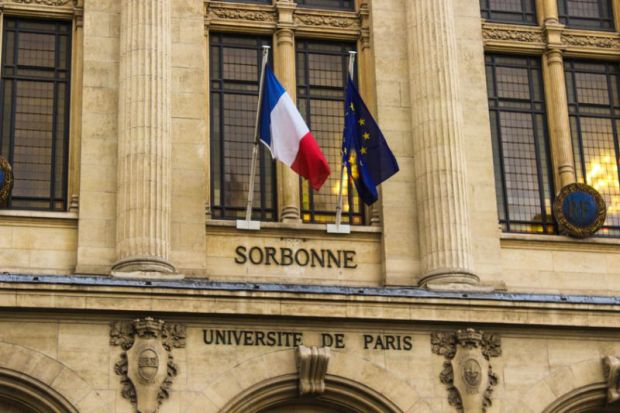When he was mayor of London, Boris Johnson once joked that he was also the leader of France’s sixth biggest city.
With some 250,000 French citizens based in the UK capital, London was a more significant Gallic centre than Bordeaux, Johnson informed the French city’s own mayor in 2013.
Anyone familiar with Bayswater, South Kensington or other affluent areas of south-west London will attest to this exodus, with well-dressed French expatriates taking many highly paid roles in City banks, law firms and IT companies. Indeed, some business leaders claim that the impressive mathematical ability of top French graduates – schooled through more traditional education methods, including quadratic equations and algebra – often gives them an edge over British bankers.
A similar transfer of academic expertise to the UK and other centres of higher education excellence could also be occurring, according to a study published in the European Journal of Higher Education.
Of PhD students who worked abroad, generally as postdoctoral researchers, 57 per cent had not returned to France within three years – with many appearing to have little intention of heading back at all.
In today’s globalised research world, this is perhaps unsurprising. France produces some of the world’s leading scholars, who regularly win Nobel prizes and Fields Medals, so it is natural that many choose to teach and research in world-leading universities in the UK, the US and across Europe.
In turn, many promising young researchers will also head to Paris, Marseilles, Lyons and Toulouse, with multinational engineering giants Airbus and Thales also luring talent (often with attractive salaries).
However, France is now seeking to reverse this brain drain, spending billions of euros to create research centres and institutions that it hopes will rival Harvard, Stanford and Oxford universities both in their outputs and reputations.
Attracting international talent is central to this endeavour, but many university leaders recognise that the real battle is recruiting promising early to mid-career researchers who will drive innovation in the long term. French academics will, of course, be crucial to this – with presidential hopeful Emmanuel Macron leading calls to bring back the country’s brightest and best.
With France’s famed quality of life and strong family ties, many émigrés want to return but find it difficult thanks to parochial hiring practices and a lack of positions caused by firmly rooted lecturers happy to hold on to their “job for life”, researchers say.
New opportunities are opening up. At Paris Sciences et Lettres – PSL Research University, a cluster of top Parisian institutions, new state money is funding “jeunes equipes” of foreign and domestic researchers. Extra cash can also be used to pay higher wages to outstanding researchers, breaking the uniform, Civil Service model of pay found in most of the sector.
But more change is needed to shake up the system, say experts, in which it is not uncommon for PhDs to get a job at their alma mater and remain there for their entire academic career.
Running on the innovation ticket, Mr Macron – who clearly sees the economic benefits of such a return – might be the man to lead that change.
Register to continue
Why register?
- Registration is free and only takes a moment
- Once registered, you can read 3 articles a month
- Sign up for our newsletter
Subscribe
Or subscribe for unlimited access to:
- Unlimited access to news, views, insights & reviews
- Digital editions
- Digital access to THE’s university and college rankings analysis
Already registered or a current subscriber? Login








